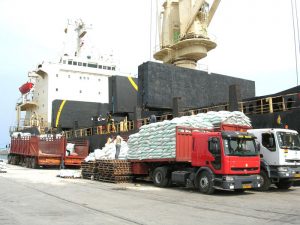
Risk Premium is the additional return or premium demanded by investors to compensate them for the higher risk associated with investing in a foreign country.
Delivering a speech at Chatham House last week on the theme: “Financing for Sustainable Development of Africa”, President Akufo-Addo noted that the global development finance architecture created almost fourscore years ago by multilateral and development finance institutions, is not fit for the scale of work needed to transform the continent into an Africa Beyond Aid.
With the African Development Bank intimating that Africa’s infrastructure requirements stands between $130 to $170 billion United States dollars a year, the President explained that: “nearly half of the funds required to fill this financing gap can be found on the continent if we can prevent, which we must, their outflow.”
According to President Akufo-Addo, “our level of development means that multilateral and development finance institutions will automatically disqualify lower-income countries from accessing concessional long-term finance… Ghana, with a GNI per capita of some $1,970, no longer enjoys IDA financing. Countries that do not enjoy IDA financing have to go to the capital markets for more expensive financing.”
He continued, “On the capital markets, Credit Rating agencies and lenders add an “African Risk Premium”, which makes it expensive to raise sustainable and competitive long-term capital to support transformation… Meanwhile, Africa offers the highest return on foreign direct investments in the world.”
The President told the gathering that the time has come for us in Africa to take the lead in generating for herself the additional funds needed to advance, as the continent is well-resourced in natural and human resources.
Africa, President Akufo-Addo said, must build robust institutions to protect herself, strengthen the capacity of her geological services to determine exactly what and how much resources the continent has, and establish legal departments in governments that will ensure African countries get their due in contracts that they sign.
“In the process, we can draw on the expertise of private practitioners. We must strengthen our tax authorities to counter tax avoidance practices such as base erosion and profit shifting by multinationals. In other words, we must entrench the rule of law. The plethora of unbalanced contracts, with their pernicious effects, has to cease, if we are to realize our vision of rapid socio-economic development,” he added.
Source: Citinewsroom.com






